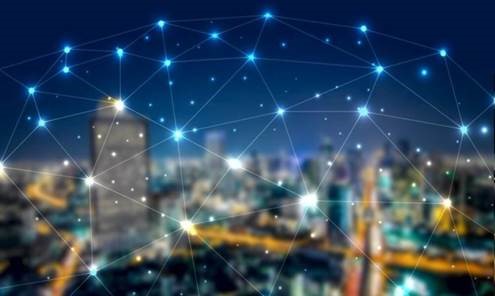A phrase that is often heard today is that “technology is changing the way business is done”. Technological development has in fact forced many companies to change the design of their business, which in turn affects their processes and their way of working.
In this globalized world, more and more companies are becoming involved in working with people who speak different languages, live in different regions of the world and are therefore subject to different jurisdictions.
Against this background, with the arrival of Blockchain, a new business model known as DAO, from Decentralized Autonomous Organization, has emerged, which promises to push the envelope of traditional companies. The term refers to a type of organization that is completely governed by computational algorithms. As such, it is able to operate autonomously, with no need for a central authority.
Traditional companies vs DAOs
DAOs are organizations managed by open-source protocols. These protocols (which consist of computational algorithms) are known as Smart Contracts and they are responsible for defining how the parties involved must work. There are no bilateral agreements involved. Only one law is used: the protocol or smart contract, which determines how all those who make up the network behave.
In traditional companies, all contributors have employment contracts, which regulate the relationship between them and the organization and with their colleagues. These contracts also stipulate their rights and obligations, based on the laws of the country in which they live.
DAOs, on the other hand, bring together a group of people who collaborate with each other for a common purpose that is defined in an open-source protocol. These people are compensated for performing tasks with tokens that are usually network-native. The members of a DAO are not linked by a legal body, nor are they party to any formal legal contract. As DAOs are based on Blockchain and smart contracts, they have lower administrative costs (which traditional companies must bear) and they do not need a trusted third party to check the reliability of the decisions made by any of the parties.
The mission of DAOs is to help with a governance problem that has existed in traditional companies from time immemorial: it is known as the agent-principal dilemma. This problem refers to situations that arise when an economic actor (the principal) depends on the actions or the nature of another actor (the agent) and the latter has less information than he should have. These cases increase in number depending on the level of asymmetry of the information involved. An example of this is a politician who is acting on behalf of citizens.
A DAO is an organization that can generate income by offering a service but is not concerned with either wages or intermediaries. It also organizes its contributors according to a business management system known as “smart working”, in which all workers are responsible for defining their own schedules and how their tasks will be distributed.
This way of working fits the decentralized model followed by DAOs and brings many benefits to these organizations, including international recruitment, which increases the possibility of finding the right profile for the company’s needs.
Another advantage is that no physical space is needed in which the members of the DAO can meet, which translates into savings for these organizations, as they do not have to pay for leases or office supplies.
This advanced type of distance working allows the members to have flexibility, as they can work where and when they wish, which means that the work does not stop short because of traffic jams or weather conditions. Therefore, decentralized autonomous organizations are considered to be an advantageous, objective business model with only one aim: to protect the business.
Characteristics of a DAO
A DAO is a particular type of organization, the characteristics of which are non-traditional. These characteristics are:
–Smart contracts: as mentioned above, organizations of this type are based on a general standard, the Smart Contract. Smart contracts consist of lines of computer code. They are valid without depending on any legal entity.
–Open-source code: DAOs are organizations that seek to create a collaboration-based community. Because of this, anyone can become a member. And they therefore promote open-source code that is accessible to all.
–Token-based compensation: as the company is based on Blockchain, the incentive for its members tends to be given in the form of tokens, usually ones from that network.
–Equal decision-making power: to be part of a DAO, its users must invest in it, either by contributing up front or by having part of their compensation for each task withheld. This automatically entitles them to decide on any action taken by the organization.
–Decentralized decisions: any proposal from the DAO must be voted on and approved by a majority of its stakeholders.
Disadvantages of DAOs
As already mentioned, all decision-making in a DAO must be approved by its members. This situation can lead to problems or consequences if there is a lack of participation in voting: this would lead to the stagnation of the organization.
Another problem can appear because of the very concept of the organization, as it is understood to be a “general association” and therefore all its members are equally liable for any legal action or financial problem faced by the company.
In conclusion, this new business model promises great benefits in the future, from companies with transparent transactions to decentralized decisions within a company that include all the participants in the organization without any distinction. Also, the commissions that companies now pay to intermediaries could be drastically reduced if they become decentralized.
It is definitely worth keeping DAOs in mind, as for many people they represent the idea of a leaderless organization that promotes the use of cryptocurrencies at the same time.


